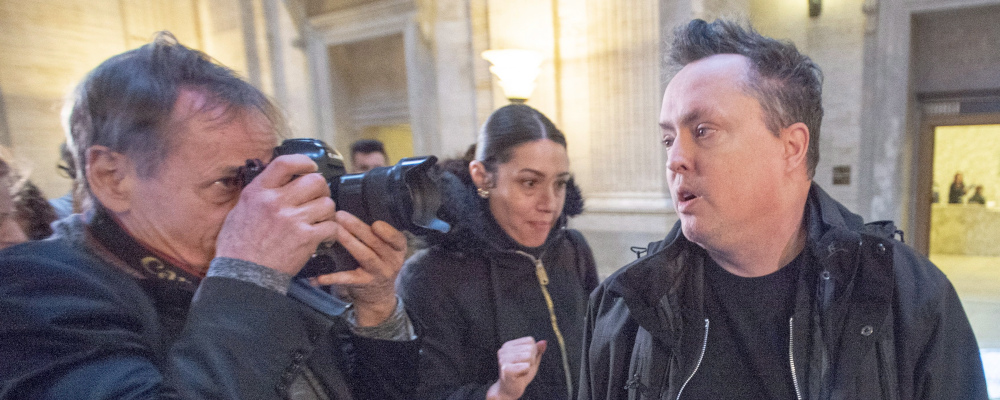Are distasteful jokes “punching down” at a disabled child a violation of constitutional or human rights laws? In the case of Mike Ward, today a slim majority of the Supreme Court of Canada has answered no, and held a line, for now, against the right not to be offended.
The Montreal comedian Ward’s “Les Intouchables” routine roasted Quebec’s ‘sacred cows’: the province’s universally beloved celebrities, such as Céline Dion and 10-year old Jérémy Gabriel, a well-known child singer with Treacher Collins syndrome.
The comments are difficult to hear, much less defend: Ward mocked Gabriel’s hearing device as a “subwoofer on his head” and called him the “ugly singing kid.” Gabriel gave evidence that the jokes caused him to be mocked at his school and even drove him to suicidal thoughts.
In 2016, the Quebec Human Rights Tribunal ordered Ward to pay $37,000 in damages for violating Gabriel’s right to dignity, finding that this right, which is protected by the Quebec Charter, outweighed Ward’s right to free expression. It arrived easily at this conclusion by asserting that the values underpinning the right to free expression, namely the search for the truth, participation to the democratic process and personal development, were not furthered by Ward’s repugnant comments, and thus his jokes carried minimal value.
In today’s decision, the Supreme Court split 5-4 over what a “reasonable person in the circumstances” would understand to be the impact of Ward’s jokes. In particular, the Court assessed whether Ward’s remarks went further than mocking Gabriel personally and instead degraded disabled people as a group, presenting a risk of inflaming discriminatory sentiments against disabled people in society.
Given the context of the barbs against Gabriel, was he being singled out because of his disability or rather, in a way, being allotted equal treatment based on his celebrity status (as Ward’s lawyer, renowned human rights litigator Julius Grey, argued)? The majority found that since Ward chose to target Gabriel because he was a public figure and not because he was disabled, the jokes did not amount to discrimination.
It’s important to recall that public anti-discrimination laws have the unique goal of preventing the perpetuation of prejudice or stereotyping based on immutable characteristics for society as a whole. It does not adjudicate private disputes between individuals. The question is whether the state failing to sanction the speech or conduct in question might risk creating a social atmosphere of hostility against a protected group.
Conversely, the Court suggested that if Gabriel had sought damages in the form of a private law claim—for example, in defamation, which protects the right to reputation, or the newly-created tort of online harassment—he might have been successful against Ward.
Justices Abella and Kasirer, writing on behalf of themselves and two other judges, dissented and would have maintained the fine against Ward. They would shift the burden to Ward to answer as to why the jokes should not be construed as discrimination. This represents a significant departure from Whatcott, a 2013 Supreme Court case which held that speech, however repugnant and offensive, is generally protected unless it meets the threshold of hate speech.
It is hard not to consider today’s decision in light of the recent outrage concerning Dave Chappelle’s recent Netflix special, The Closer. In The Closer, Chappelle expresses disgust at being “tricked” into calling a trans woman beautiful and compares trans women to white people wearing blackface.
At first, Netflix’s corporate bosses defended artistic freedom in principle. “We have a strong belief that content on screen doesn’t directly translate to real-world harm,” Ted Sarandos wrote in a company-wide email. But after a few dozen Netflix employees staged a walkout, alleging Chappelle’s comments risked inciting further violence against trans people, Sarandos seemed to fold, saying he had “screwed up” in not acknowledging the harm towards the trans community. One is left to wonder what the impact of l’affaire Chappelle will be on comedians less successful—that is to say, nearly all—than Chappelle.
The Ward decision was one judge away from rendering the spectre of government fines for offensive jokes a constitutional requirement, an outcome that would be the death knell of comedy. If comedians must imagine their jokes later transcribed into courtroom evidence and dissected by judges, they will inevitably stay away from the edgy, the subversive, and the dark—in other words, what makes comedy so satisfying and important in a free society.
Comedy relies on crossing boundaries and exposing truisms: employing the state in the messy exercise of determining when an invisible line has been crossed undoubtedly would lead to a chilling effect and a world of milquetoast humour.
Recommended for You

Everyone’s managing decline. I’m exploring a run for Ontario Liberal leader to fight for growth

Why extortion in Canada has surged in B.C., Alberta, and Ontario

‘He has to persuade people’: What’s at stake for Poilievre at the CPC convention

8 things to watch for as Conservatives gather in Calgary for party convention




